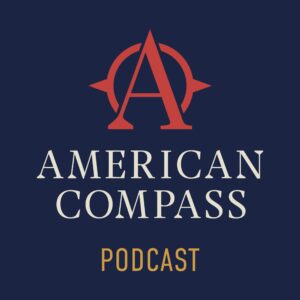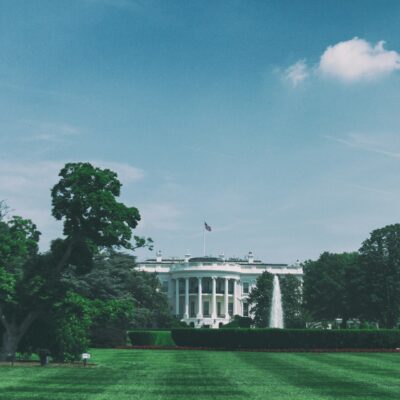

Even among Republicans, few can identify major areas where they’d like government to do less
Recommended Reading
Executive Summary
A key feature of the ongoing realignment in American politics is the declining relevance of the “bigger government” versus “smaller government” frame within which many debates occurred in the post–Cold War period. The archetypical “socially liberal, fiscally conservative” voter has moved into the Democratic Party while many non-white and lower-income voters traditionally more supportive of government programs have moved into the Republican Party. As conservatives have turned away from market fundamentalism, they have also become more open to a variety of policy interventions in the economy.
In March 2024, American Compass partnered with YouGov to survey 1,000 Americans about their views on government programs at the local, state, and federal levels.
- Responses showed little of the polarization by either political party or class that is typical of polling on most political issues.
- Americans across parties and classes have positive views of their local and state governments, are optimistic about government’s ability to solve problems, and struggle to identify major policies or programs they would cut.
- Views of the federal government are more polarized, but there too support for the government’s major activities remains strong across the board.
- Republicans do not support cutting the major entitlement and safety-net programs that conservative politicians and think tanks have long targeted.
- Social Security is overwhelmingly popular: 81% of Republicans call it “one of our nation’s greatest achievements” rather than “a disaster”; only 22% consider it “welfare”; only 7% say the federal government should “do less” in “support for the elderly through Medicare and Social Security,” compared with 57% who say it should “do more.”
- Pluralities of Republicans also support more safety-net and health care spending, with fewer than 25% saying government at any level should “do less” in “support for the poor, disabled, needy” or “medical care for those who need help affording insurance.”
- Despite broad agreement on substance, Republicans and Democrats do respond very differently to values statements about the size and role of government.
- Republicans are more likely to prefer market-based solutions and social insurance programs that recipients must “pay into.”
- Republicans are also more skeptical in government’s ability to play a positive role in advancing liberty and economic growth.
State and Local Government Are Popular, the Federal Government Is Not
Americans have broadly positive views of their local governments, with large majorities strongly or at least somewhat agreeing with statements ranging from “my local government takes care not to waste our tax dollars” to “my local government performs its most important tasks well” to “my local government acts with honesty and integrity.”
At the state level, support declines, but remains net positive. At the federal level, support plummets to strongly negative sentiment across all dimensions.
At the local and state levels, these positive feelings are shared by Democrats and Republicans alike, with Independents tending to take a dimmer view. Only at the federal level do views diverge sharply, with Democrats maintaining positive (albeit less so) views while Republican and Independent views plunge into sharply negative territory.
By class, views are generally positive at the local and state levels before turning negative at the federal level—where, notably, views of the lower and working classes diverge most widely. In particular, members of the working class responded far more negatively than other groups on the question of whether government “treats people fairly.”
Striking polarization also emerges on other demographic dimensions—for example, by race and gender. Non-white men have especially positive views of the federal government, as strong as Democrats, while white women have especially negative views, as negative as Republicans.
Americans Have More Nuanced Views of Government Than Political Rhetoric Suggests
While Republican politicians often default to harsh criticism of government as untrustworthy and incapable of accomplishing anything, Republican voters disagree. Indeed, their views are not all that different from the views of Democrats and Independents.
For instance, when asked whether government should be bigger or smaller, 54% of Democrats and 49% of Republicans said it depends: “Government should do more of some things, less of others.” Only 27% of Republicans said, “Government should do much less.”
Likewise, when asked whether government policies and programs are usually helpful or unhelpful, 51% of Democrats and 52% of Republicans said, “I don’t believe a general rule of thumb makes sense.” Only 27% of Republicans said, “As a rule of thumb, I usually think that government policies and programs will be unhelpful in solving our problems and achieving progress.” Nearly as many felt the opposite, that “as a rule of thumb, I usually think that government policies and programs will be helpful in solving our problems and achieving progress.”
Republicans are much more likely than Democrats to say, across all levels of government, that they would prefer lower taxes and less government. At the federal level especially, that view is held by 62% of Republicans and only 15% of Democrats.
But when asked what government should do less of, Republicans are almost as unlikely as Democrats to select any of government’s major functions at any level. A substantial share of Republicans does want to see both the state and federal governments doing less in higher education. But for most functions, fewer than one-in-five Republicans say government should do less.
Strong Support for the Welfare State
Many popular narratives hold that views on the safety net and entitlements are sharply polarized by party and class, with Republicans and the working class far less supportive of “redistribution” and efforts to aid the poor. The data do not support that story.
When asked whether government should “do more,” “do the same,” or “do less” on these issues, fewer than one-in-five Republicans say, “do less.” In every case, they are at least twice as likely to say, “do more,” even when it comes to the services provided by purportedly unpopular policies and programs like the Affordable Care Act and Medicaid.
The working class also appears to have much higher enthusiasm than is often assumed for safety-net programs to help the needy. Indeed, asked to choose between programs that “go only to people who have ‘paid into the system’” versus ones that “go to people based on their level of need,”working-class respondents showed a light preference for need-based programs—in contrast to middle- and upper-class respondents.
Perhaps unsurprisingly, then, working-class respondents were more likely than the population overall to say that government should “do more” to support the poor and the elderly.
While the preference for paid-into social insurance programs versus need-based safety-net programs varied significantly by party, Americans of all political stripes exhibit a shared intuition about the definition of “welfare.” Presented with a range of policies and asked to select all that constitute “welfare,” large majorities in every party viewed means-tested programs like Temporary Assistance for Needy Families (TANF) and Supplemental Nutrition Assistance Program (SNAP) as “welfare” while rejecting that characterization of Social Security or a family benefit for working families.
When it comes to Social Security in particular, very few Americans consider it a “disaster.” Rather, by margins of four-to-one or more, Americans of all parties and classes see Social Security as “one of our nation’s great achievements” and say, “we must protect it for future generations” rather than viewing it as “a disaster” and believing “the federal government should not be providing retirement security that it can’t afford.”
Republicans Remain Committed to Free-Market Rhetoric
While support for major government programs appears similar across parties, Republicans still express starkly different views on broad, rhetorical questions about the role of government. In general, Republicans are the outliers in these responses, with the population overall—Independents as well as Democrats, and members of each class—preferring the other view in each case.
For example, while 64% of Republican say, “government policies and programs should rely on markets to solve problems, providing people with resources and letting them shop themselves,” the nation overall leans strongly toward the view that “government policies and programs should solve problems directly when they can, by providing the services that people need.”
Similarly, while 55% of Republicans define “liberty” as “the freedom to do what I want” and believe that “the smaller the government and the fewer its constraints on us, the more liberty we all have,” most Americans define it as “the ability to live a good life” and believe that “government must not oppress, but there are many ways that government policies and programs can help us to achieve liberty.”
Finally, while 66% of Republicans say, “government interferes with economic growth” and believe that “we need to get government out of the way, cut taxes and spending, and slash red tape to get America growing faster in the 21st century,” most Americans say, “government plays an important role in a healthy economy” and believe that “we need new and better government programs and policies to get America growing faster in the 21st century.”
The appendix provides additional detail on the prompts and context provided to respondents for these questions.
APPENDIX
The survey provided respondents with significant context, presenting both sides of various arguments and detailing the nature of various government programs in an effort to elicit responses that best reflect the intuitions of Americans.
Government Functions
For questions asking about core local, state, and federal functions, respondents were provided with the following options:
Local
- Infrastructure like roads, bridges, water and sewers
- Public safety like police, fire, ambulance
- Arts and recreation like concerts, libraries, parks
- Support for the poor, disabled, needy
- Public schools for kindergarten through 12th grade
State
- Infrastructure like highways and airports
- Public universities and community colleges
- Support for the poor, disabled, needy
- Medical care for those who need help affording insurance
Federal
- Support for the elderly, through Social Security and Medicare
- Support for the poor, disabled, needy
- National security and the military
- Medical care for those who need help affording insurance
- Support for students attending universities and community colleges
- Support for families raising children
Definition of Welfare
For the question about defining “welfare,” respondents were provided with this introductory text:
Politicians often debate whether, or how, the government should provide “welfare” checks to low-income households. Some people support the idea of providing cash to those in need, while others condemn it as a handout that discourages the recipients from working to get out of poverty. But now a debate has started over what kinds of policies count as “welfare” at all. Does welfare mean only cash benefits, or all forms of assistance? Does it include benefits that only go to people who work?
Below is a list of five policies, some of which are in effect while others have been proposed. Select all that you consider to be “welfare.”
Respondents were then provided these options (in random order):
- Social Security – Pays retirees a monthly amount, based on how much they earned during their working years. Must have been employed for many years to be eligible.
- Temporary Assistance to Needy Families (TANF) – Pays parents with little or no income a monthly amount of cash. Once a family begins earning more income of its own, it become ineligible to receive this benefit.
- Supplemental Nutrition Assistance Program (SNAP) – Commonly called “food stamps,” provides households with little or no income a monthly amount that they can use to buy food. Once the household begins earning more income of its own, it becomes ineligible to receive this benefit.
- Family Benefit – Gives parents an annual payment for each child of up to $2,000. A family with no earnings receives no payment.
- Wage Subsidy – Pays additional money in each paycheck to workers earning less than $15 per hour. A worker earning $11 per hour from an employer would receive a total of $13 per hour in pay.
Social Insurance
For the question about programs that are “paid into” versus focused on recipients with greatest need, respondents were provided with this introductory text:
Some forms of government support—for instance, Social Security—go only to people who have “paid into the system” by working and paying taxes. Other forms of support—for instance, Food Stamps—go to people based on their level of need.
Some people see these types of support as the same: It is all taxpayer funds going to households.
Other people feel more favorably toward programs that have to be “paid into.” In this way of thinking, those recipients have done their part and deserve what they receive.
Still others feel more favorably toward programs that focus on the poorest households. In this way of thinking, those recipients have the most need and benefit most from the help.
Market-Based Solutions
For the question about market-based solutions versus direct government programs, respondents were provided with this introductory text:
Even when politicians agree that a government policy or program is needed, they often disagree on the best way to address the challenge.
Some argue for a government program to provide the service itself, while others argue for solutions that rely on markets.
For instance, some people believe that public education should be provided by a public school in each town, while others believe that parents should be given “vouchers” so that they can shop between schools that compete with each other.
Likewise, some people believe that the government should provide a public health insurance plan like Medicare to everyone who wants it, while others believe that the government should give people the money to shop for a private insurance policy of their choice.
Economic Growth
For the question about the role of public policy in economic growth, respondents were provided with this introductory text:
Most Americans want a growing economy that delivers widespread prosperity, but they often disagree on what role government plays in that process.
Some see government policies and programs playing an important role in a healthy economy, by setting the rules for competition, encouraging productive activity, investing in important projects, and ensuring that everyone shares in the gains.
Others see government policies and programs as mostly interfering with economic growth through taxes and regulations that discourage investors and job creators from building businesses, which reduces everyone’s prosperity.
ABOUT THE DATA
The American Compass Family Survey was conducted by YouGov between March 1 and 5, 2024, with a representative sample of 1,000 Americans. YouGov interviewed 1,113 respondents who were then matched down to a sample of 1,000 to produce the final dataset. The sampling frame is a politically representative “modeled frame” of U.S. adults, based upon the American Community Survey (ACS) public use microdata file, public voter file records, the 2020 Current Population Survey (CPS) Voting and Registration supplements, the 2020 National Election Pool (NEP) exit poll, and the 2020 CES surveys, including demographics and 2020 presidential vote.
The matched cases were weighted to the sampling frame using propensity scores. The matched cases and the frame were combined, and a logistic regression was estimated for inclusion in the frame. The propensity score function included age, gender, race/ethnicity, years of education, home ownership, and region. The propensity scores were grouped into deciles of the estimated propensity score in the frame and post-stratified according to these deciles.
The weights were then post-stratified on 2020 presidential election choice as well as a four-way stratification of gender, age (four categories), race (four categories), and education (four categories), to produce the final weight.
In analysis of the results, “Class” is defined by education and income:
- “Lower” (N=209): less than a four-year degree and household income below $30K; or did not report household income and do not have a high school diploma.
- “Working” (N=299): less than a four-year degree and household income $30K–$80K; or did not report household income and have either a high school diploma or some college but no degree.
- “Middle” (N=357): four-year degree or more and household income $30K–$80K; or household income $80K–$150K; or did not report household income and have a two-year or four-year college degree.
- “Upper” (N=93): household income above $150K; or did not report household income and have a post-graduate degree.
Respondents with a four-year college degree or more but household income below $30K are excluded from analyses using the “Class” variable (N=42).
Recommended Reading
Talkin’ (Policy) Shop: The American Appetite for Government
On this episode, Oren and Chris dive into our latest survey results on American attitudes toward the role and scope of government.
The Family Policy Renaissance, Explained
Republicans, Independents, and the working and middle classes respond to the pressures facing working families
How the Biden White House Cornered Itself
The president’s polarizing policies are ones that divide Democrats and the upper class from everyone else
The American Rejection of Globalization
While many economists continue to insist that globalization has benefited the United States, the American people do not agree.












